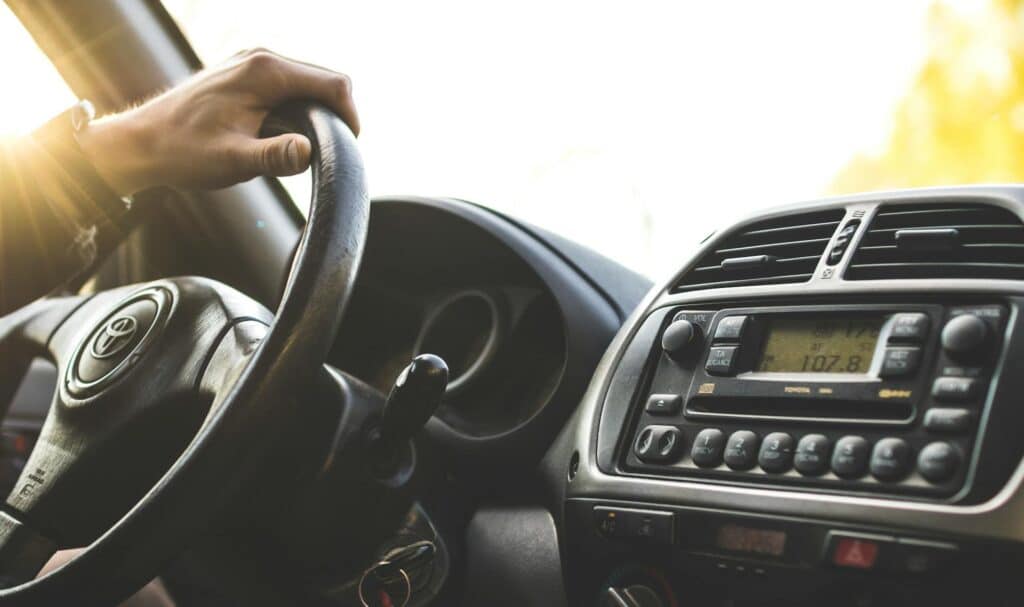Are Extended Car Warranties Transferable?

Are extended car warranties transferable? This question is crucial when buying or selling a vehicle, as it can affect the car’s value and the buyer’s peace of mind. The short answer is: it depends on the warranty provider’s terms and conditions. In this article, we’ll guide you through the basics of transferability, factors that influence it, and steps for both manufacturer-backed and third-party warranties.
Understanding If Are Extended Car Warranties Transferable
Extended car warranties provide additional protection beyond the factory warranty, covering a range of mechanical and electrical components, often with flexible terms that are customizable to individual needs.
Transferability of extended warranties varies with the provider, with steps and potential fees involved, and may impact resale value, especially for luxury or specialty vehicles.
Manufacturer-backed warranties often transfer automatically tied to the vehicle’s VIN, while third-party warranties require owner notification and documentation, and the terms and fees for transfer may vary.
Extended Car Warranty Basics

When you purchase a vehicle, the manufacturer’s warranty provides initial protection. However, what happens when this warranty expires? Enter, the extended car warranty, also known as a vehicle protection plan. As the name suggests, it offers additional coverage beyond the standard factory warranty, providing financial relief and peace of mind to car owners.
Extended warranties are designed to provide additional protection by covering certain repairs after the factory warranty expires. Coverage can include various terms, such as mileage limits or time periods, copays for services, and may also be impacted by the negotiated cost and refund policies.
What is an Extended Car Warranty?
An extended car warranty is an additional protection plan purchased to provide coverage beyond the initial manufacturer’s warranty. It covers repair and replacement costs for a range of electrical and mechanical components, including:
- Engine
- Transmission
- Suspension
- Steering
- Brakes
- Air conditioning
- Electrical system
- Fuel system
- Cooling system
It also covers specific problem areas not covered by the manufacturer.
Unlike factory warranties, extended warranties offer more flexible terms and can vary significantly between different warranty providers in what repairs they cover. This flexibility allows you to tailor your warranty to your specific needs and concerns, ensuring you’re covered where it matters most.
Why Consider an Extended Car Warranty?
Extended car warranties, also known as extended auto warranty, are designed to cover unexpected repair costs, providing financial relief to car owners. This means that if your car suffers a mechanical breakdown or requires a costly repair, you won’t have to dig deep into your pockets to cover the costs.
Having an extended car warranty offers peace of mind to owners, knowing that key components have protection from future issues. Economically, the upfront cost of an extended warranty can be more advantageous when weighed against the possibility of significant future repair expenses.
So, why not consider an extended car warranty for that extra layer of protection?.
Transferability of Extended Car Warranties

Not all extended warranties are created equal, and this is especially true when it comes to transferability. The ability to transfer an extended car warranty to a new owner depends on the terms set by the warranty provider. Some warranties are transferable, while others are not. Even warranties for new vehicles may not be transferable or may experience a reduction during the transfer.
Companies such as Olive and Endurance allow for the transfer of warranties to new vehicle owners. To transfer a car warranty, follow these steps:
- Contact the warranty company or dealership.
- Provide the vehicle’s VIN.
- Provide the new owner’s contact information.
- Present documentation of maintenance along with a change of registration.
Factors Affecting Transferability
Transferring extended car warranties is not always a straightforward process. Various factors can influence the transferability of extended car warranties. For instance, the type of vehicle, particularly when it comes to luxury or specialty models such as Range Rovers or Ferraris, can have a significant influence on the transferability of extended car warranties.
Extended warranties for high-end or specialty cars often have a greater impact on the vehicle’s resale value as opposed to warranties for more common vehicles. Therefore, if you own a luxury or specialty car, your warranty could be a major selling point when it comes time to sell.
Common Transfer Restrictions
When transferring an extended car warranty, it’s important to be aware of common transfer restrictions. Typically, the transfer must be completed within a specified timeframe, often 30 days, following the sale of the vehicle. Initiating the warranty transfer within this given period is essential for the process’s validity.
Upon transferring, some extended warranties may have altered terms. For example, an Endurance vehicle service contract may change from an unlimited-mile to a 50,000-mile contract between owners. It’s crucial to understand and communicate these changes to the potential buyer.
Transferring Manufacturer-Backed Extended Warranties

Manufacturer-backed warranties have their own set of rules when it comes to transferability. These warranties for new or Certified Pre-owned vehicles are generally transferable to new owners. They are often linked to the vehicle’s VIN, allowing them to transfer automatically with the sale of the car without additional steps needing to be taken.
However, it’s important to note that certain coverages may have limitations. For instance, Ford’s 12-month comprehensive limited coverage does not transfer with the resale of the vehicle. Therefore, understanding the specifics of your manufacturer-backed warranty is crucial when selling your car.
Steps to Transfer a Manufacturer-Backed Warranty
Transferring a manufacturer-backed warranty involves a few key steps:
- The seller should contact the warranty provider or send a letter to inform them of the sale.
- The seller should provide the buyer with the relevant warranty documentation.
- The seller should inform the manufacturer’s dealership of the change in ownership.
The buyer must then submit their contact information and details about the sale to the warranty provider. They may also be required to provide documentation such as service records or updated vehicle registration. The good news is, factory warranties that are linked to the vehicle’s VIN can automatically transfer along with the car during the sale, simplifying the process for the new owner.
Potential Limitations
Despite the convenience of manufacturer-backed warranty transfers, there can be potential limitations. Some manufacturers may restrict the transfer of their warranties or may reduce the level of coverage during the transfer. It’s crucial to be aware of these restrictions when planning to sell your car.
Certain Certified Pre-Owned (CPO) warranties may allow only part of the coverage to be transferred, or they may be completely non-transferable. However, factory warranties commonly transfer seamlessly with the vehicle as they are associated with the VIN. Always verify the transfer policy with the issuing dealership, as there can be specific conditions or procedures in place for the warranty to transfer.
Transferring Third-Party Extended Warranties

Now let’s switch gears and discuss the transfer of third-party extended warranties. These warranties tend to have more customization and variation in coverage inclusions compared to manufacturer warranties. To transfer a third-party extended car warranty, you’ll need to provide the warranty provider with documentation proving maintenance services and a change of registration.
The fees for transferring third-party extended car warranties may range between $50 and $75. However, some companies, such as Olive, allow transfers at no charge, making it more affordable for both the seller and the buyer.
Steps to Transfer a Third-Party Warranty
Transferring a third-party car warranty involves a few key steps. First, the current vehicle owner must contact the warranty provider to notify them of the change in ownership. This can usually be done via phone or email.
Next, the owner needs to provide the buyer with change of ownership documentation and the contact details of the new owner. It’s also crucial to confirm any fees associated with transferring the warranty to a new buyer to ensure transparency and prevent any last-minute financial surprises.
Fees and Charges
When it comes to fees and charges, transferring a third-party extended car warranty can vary. Some providers charge a specific transfer fee, such as $50 or a range between $50 to $75 for the transfer process. While some companies may impose transfer fees up to $100, others do not charge any fee to transfer warranty coverage to a new owner.
Many reputable third-party warranty companies charge minimal or no fees for the transfer of warranty coverage. Therefore, it’s crucial to inquire about any extra costs that may be incurred with the warranty provider when planning to transfer your warranty.
Making Your Extended Car Warranty More Attractive for Resale

A transferable extended car warranty can be a significant selling point when it’s time to part with your beloved vehicle. This coverage can enhance the value of a vehicle by providing new owners with protection against unexpected repairs and breakdowns, which may increase the vehicle’s resale value. With transferable extended car warranties, both the seller and the buyer can enjoy peace of mind knowing that the car is covered.
Private buyers often regard a transferable extended warranty as a significant value when purchasing a used vehicle. Therefore, if you’re planning to sell your car, highlighting the benefits of your extended warranty could be a smart move to attract potential buyers.
Highlighting Warranty Benefits
When it comes to selling your vehicle, it’s all about showcasing its best features. And a transferable warranty is no exception. Having a transferable warranty can significantly increase a vehicle’s resale value and serves as a notable selling point for potential buyers.
Extended warranties appeal to buyers by offering peace of mind and shielding them from the financial impact of unexpected vehicle repairs. A car with an existing warranty or service contract that includes benefits such as roadside assistance is more attractive to buyers, as it eliminates the need to secure a warranty and provides immediate protection.
Ensuring a Smooth Transfer Process
Ensuring a smooth car warranty transfer process is key to making your extended car warranty more attractive for resale. To do this, it is crucial to promptly contact the warranty company to initiate the transfer process. Supplying the buyer with change of ownership documentation is also a key step in ensuring a seamless transition during the warranty transfer.
Confirming any fees for transferring the third-party warranty to a new buyer ensures transparency and prevents any last-minute financial surprises. Additionally, executing the transfer procedure within the specified time limit, typically within 30 days, is important for the warranty to remain valid for the new owner.
Summary
Extended car warranties provide a valuable layer of protection for car owners, covering a range of potential repairs and issues that can arise with your vehicle. These warranties, whether manufacturer-backed or third-party, can often be transferred to a new owner, enhancing the vehicle’s resale value and appeal.
Understanding the specifics of your warranty, including its terms, coverage, and transferability, is crucial whether you’re selling your car or buying a used one. With the right knowledge and approach, an extended car warranty can provide peace of mind and potentially save thousands of dollars in unexpected repair costs.
Frequently Asked Questions
What happens to my extended car warranty when I sell my car?
The extended warranty on your car stays intact and can even increase the resale value of your vehicle, serving as an incentive for potential buyers.
How do I get out of my extended car warranty?
To cancel your extended car warranty, first check your contract for the cancellation period and then contact the dealership to initiate the cancellation process. Provide the purchase order, put the request in writing, and follow up to ensure your cancellation is verified and processed.
Why are warranties not transferable?
Warranties are not transferable because companies see them as a contract between the original purchaser and themselves, and transferring it would disrupt the chain of ownership and the terms of the original agreement.
Should you take out an extended car warranty?
Yes, you should consider an extended warranty if your car is not very reliable or if you’re unsure about a used vehicle’s reliability. It can protect you from unexpected repair costs.
What is an extended car warranty?
An extended car warranty is a protection plan that provides coverage for repairs and replacements beyond the manufacturer’s warranty, offering additional peace of mind.